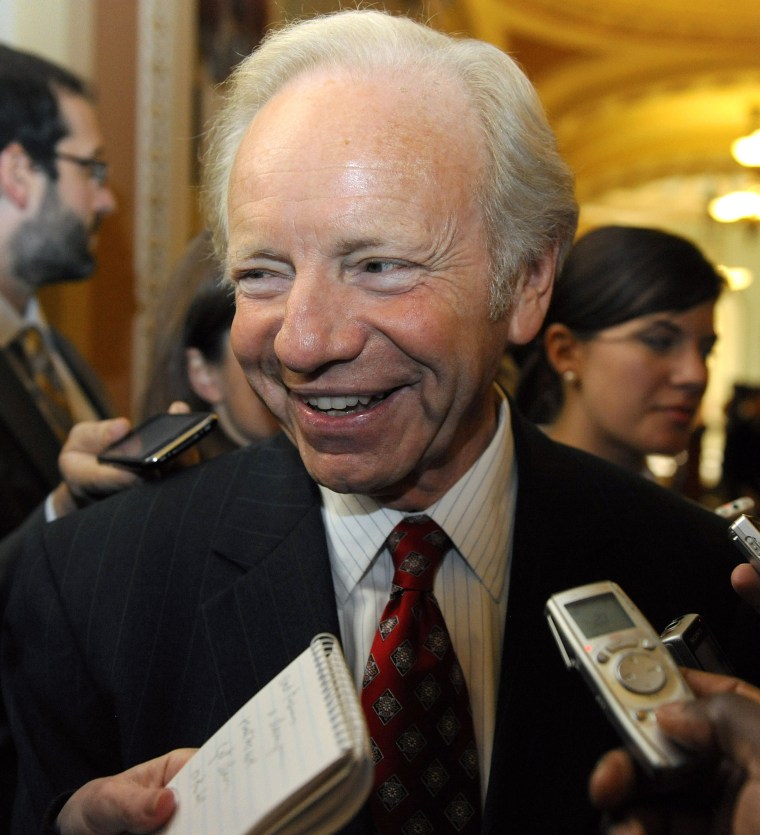A centrist senator who has vowed to block any form of a government-run insurance option in the Senate's health care bill said Wednesday that he is "encouraged" by progress on a compromise on the plan being crafted by a group of Democratic negotiators.
While re-affirming his opposition to the "public option," Sen. Joseph Lieberman, I-Conn., said he "look[s] forward to analyzing the details" of a tentative deal currently being reviewed by the Congressional Budget Office.
Lieberman told reporters on Tuesday that he is "open-minded" about the deal, which would create an insurance program regulated by the government but run by private insurance companies.
"My colleagues know where I am on the public option, which is I'm against it," he said before walking into his party's weekly luncheon. "And I think [they] also know that I'm open-minded on some of the other trade-offs."
Lieberman’s apparent receptiveness to the compromise could eventually provide Senate Democrats with the critical 60th vote they need to pass the sweeping health care reform bill.
The Connecticut senator, who won re-election as an Independent in 2006, caucuses with Democrats.
While other moderate Democrats — like Sen. Ben Nelson of Nebraska and Blanche Lincoln of Arkansas — have opposed the public option as it is currently written in the Senate's health care bill, they have publicly entertained a willingness to vote for a scaled-back version.
But Lieberman has consistently vowed to block the bill if it contains any form of a government insurance program.
That stance, said Democratic aides, had made him the biggest obstacle to final passage of the bill.
The compromise plan now taking shape would be similar to the plans offered to government employees. There would also be expansion of Medicare and Medicaid, as well as tougher insurance market reforms.
Lieberman said the idea of a national insurance plan that mirrors the one offered to members of Congress is "an idea worth considering" as long as private companies run the program.
He said he's concerned about the cost of a proposed temporary expansion of Medicaid, in which people as young as 55 would be able to buy into the program.
"I'm open to looking at it," he said, adding that he remains concerned about the cost of enrolling many new Americans in Medicaid.
That concern has been echoed by many state governors, who worry that their sagging state budgets will be insufficient to pay for the program, which is jointly funded by states and the federal government.
Lieberman was explicit Tuesday that his openness hinged on any form of a public option being scrubbed from the bill, saying he refused to accept any deal that appeared to be "public option-light."
"What I hope … is being discussed now is essentially trade-offs," he said. "In other words, if there is no public option, some of those who have argued most for the public option may ask for other programs to be put in. And on those I'll consider them one by one."
Despite his optimism, however, Lieberman was careful to say that he is still "skeptical" about the overhaul effort, saying that he fears that Democrats may be trying to include too much in the bill.
"There's a danger here as we get closer to the possibility of a vote that people will try to add more to the bill than it can reasonably carry," he said. "And I hope my colleagues won't do that because there's so much good in the underlying bill."
